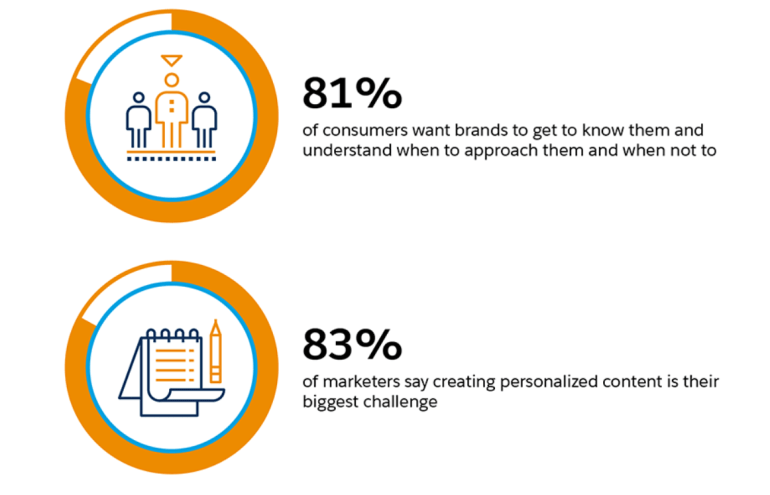IAB’s Project Rearc is a possible solution to the 3P cookies apocalypse. The project would create a new framework for online advertising that is more privacy-centric.
The Interactive Advertising Bureau (IAB) launched Project Rearc at the 2020 IAB Annual Meeting held on 10th February 2020. As they term it, the project aims at getting stakeholders in the digital advertising industry to make the internet a better place for consumers – marrying the value of privacy, personalization, and community.
In other words, the project will focus on how the industry will operate without the presence of third-party cookies. It’s because the 3P cookies apocalypse has left many people feeling unsure about how to move forward with their advertising efforts.
Before we get into IAB’s project Rearc, let’s quickly understand what are 3rd party cookies.
What are third-party cookies?
Third-party cookies are created by domains other than the one you are visiting. They can be used for a variety of purposes, including advertising, tracking, and analytics. For example, if you visit a website that has third-party advertising, the advertiser may set a cookie on your browser.
This cookie may then be used to track your online activity and target you with ads. Third-party cookies can also be used for analytics purposes. For example, a website may use a third-party service to collect data about its visitors. This data may include information about your browser, your IP address, and your online activity.
But here’s the thing – cookies have never been known for being transparent. More often than not, consumers are left in the dark about how their data is being used and there have been some serious privacy breaches as a result.
This is the reason why the third-party or 3P cookies apocalypse is nigh.
What is 3P cookies apocalypse?
The 3P cookies apocalypse is a term used to describe the potential death of the online advertising ecosystem as we know it. The name comes from the fact that third-party cookies, which are used by ad networks to track users across the web, are being phased out by major browsers.
3P cookie apocalypse may present some difficulties for marketers, but above all else, it’s about giving consumers more control over their data- what is collected, how it’s shared, and how brands can use it.
Now, let’s come to the Project Rearc by IAB.
Why IAB Introduced Project Rearc?
The goal of Project Rearc is to improve how personalized advertising functions online. This is being done in light of signal loss due to platform changes, privacy regulations, and for the impact 3P cookies apocalypse.
Project Rearc’s launch conference dealt with some important questions being raised in the advertising industry. One of the most pertinent questions is how can industry experts provide personalization to users while protecting their identity at the same time?
According to industry experts, consumers are facing a dilemma when on one hand, they want personalization from brands, while on the other, they wish brands respected their privacy. A solution like Project Rearc aims to answer that with the introduction of a framework for a universal login. It will provide power to consumers to control to who their data is being shared with while allowing media experts to target them for ads.
Steve Katelman of Omnicom
“What I feel is most important is coming together to engage the industry in an education campaign that helps real people understand the quid pro quo of advertising in a free content world – and a listening campaign that makes sure we solve for their fear and apprehensions when they surface.”

Background On Why Project Rearc Has Come Into Force
Following in the same footsteps of Chrome’s counterparts (Firefox and Safari), who are the first one to take the step of blocking third party cookies, Google is gradually making it a more privacy-compliant browser.
Some of the recent updates in Chromium have revolved around third party cookie blocking, which will gradually lead to 3rd party cookies demise. This means 3P cookies apocalypse is coming sooner than you think.
On January 14th, 2020, Google announced that within a span of two years, third-party cookies will be completely phased-out. This was followed by the SameSite cookie attribute which rolled out on 4th February 2020 on Chrome 80. Google had already laid the foundation of these updates in August 2019 when they launched their privacy sandbox.
As a consequence , the ad tech and digital advertising industry are beginning to come up with possible solutions that can bridge the gap left behind by 3P cookie apocalypse. Project Rearc is one of the many initiatives to come that will build a better digital advertising ecosystem where user privacy is of prime importance.
What Has Been Proposed Under Project Rearc
The project will be directly handled by the IAB Tech Lab which as mentioned above, which has proposed standards of a universal login or ID.
According to the tech lab, the absence of third-party cookies and mobile IDs will make the ‘default future state of digital media 100% anonymous and non-addressable to third-party vendors.’
Direct addressability for advertising will now be focused on only first-party data. One of the prime examples of this is an email address that a user provides of his/her own accord.
IAB Tech Lab intends to develop stringent technical standards and guidelines that a universal identifier will comply with. The following conditions will be met with the universal identifier in place:
- Consumers will always be in full control of the data. The data will never be falsely taken from them.
- The identifier will have sufficient encryption. This will prevent it from being reverse-engineered to identify the person.
- Brands and publishers will have regular auditing activities to ensure that third-party vendors are not tracking consumer details without consent.
- Third-party vendors can also collect data on behalf of first-parties, provided the above conditions are met.
“The cookie’s death can lead to a better future for digital media globally. It’s an opportunity to change the practices, controls, and value surrounding personal data to favor consumers. IAB and IAB Tech Lab have already been hard at work, engaging our members to define practical solutions.
In the coming year, Tech Lab will undertake one of its most comprehensive initiatives to create technical standards, guidelines, and potentially a compliance program to support members – and consumers.”
– Dennis Buchheim, EVP and General Manager, IAB Tech Lab
How Did The Ad Tech Industry React To Project Rearc
According to sources and online responses, industry reactions have been rather mixed towards Project Rearc’s launch. Some of the negative reactions that we came across online are:
At the same time, some reactions were equally positive but mentioned some underlying concerns:
Prepairing for the Future
The impending 3P cookies apocalypse means that marketers will have to start relying on first-person data, which can be difficult to collect. However, there are some steps you can take to make the process easier.
First, try to collect as much data as possible. This may require putting more effort into your marketing and advertising campaigns.
To do away with issues that will come with 3P cookies apocalypse, you’ll need to take a close look at where your reliance on third-party cookies might put you at risk.
Considering the same, set forth plans to collect the same data directly from consumers, with their consent. That will require creating a robust privacy policy and making sure that your data collection, storage, and processing systems comply with local and federal data privacy laws.
Final Words
At the end, we’d like to say that while Project Rearc’s relevance is too early to be commented on, it is definitely a positive step towards building a third-party cookie-free world. The digital advertising environment has long relied on cookies for consumer targeting but will now have to rethink the structure on similar lines as Project Rearc.
Important Links:
- Project Rearc: An Industry Collaboration to Rearchitect Digital Marketing
- The 2020 IAB Annual Meeting: IAB Introduces Project Rearc
- Joining The Project Rearc Community
The primary reason behind 3P cookies apocalypse is due to privacy concerns. These cookies are set by companies other than the website you are visiting and are generally used for advertising purposes.
Because they can track your browsing activity across different sites, there are concerns that they could be used to collect sensitive information without your knowledge or consent.
Another reason behind blocking third-party cookies is that they are increasingly being blocked by browsers. In response to privacy concerns, many browsers now have built-in features that block third-party cookies or make it easier for users to control which cookies are allowed. This is making it more difficult for companies to rely on third-party cookies for advertising and other purposes.
Finally, some companies are moving away from 3rd-party cookies voluntarily. In an effort to be more privacy-friendly, some online businesses are choosing to set first-party cookies only or to use other tracking technologies that do not raise the same privacy concerns.
Although cookies set by third parties aren’t likely to infect your computer with malicious viruses or malware, some users may still consider them an invasion of privacy.
Cookies are small text files that are placed on your computer by websites that you visit. They’re used to improve your experience by allowing sites to remember your preferences or login information.
You may have noticed that more and more websites have been asking you to accept cookies recently. This is due to a data privacy protection law that requires online businesses to be more transparent about the data they collect from users.
By accepting cookies, you are allowing the website to collect information about your browsing habits so that they can provide you with a better experience.
The 3P cookies apocalypse is nigh – multiple browsers have been blocking them for years, and Google Chrome will stop supporting them by the end of 2024 as part of their larger Privacy Sandbox strategy.
This means that advertisers will need to find new ways to track users across the web, and some have already started to explore alternatives.

Shubham is a digital marketer with rich experience working in the advertisement technology industry. He has vast experience in the programmatic industry, driving business strategy and scaling functions including but not limited to growth and marketing, Operations, process optimization, and Sales.







